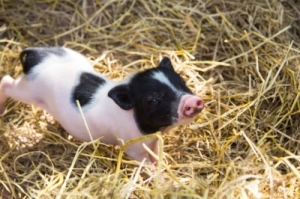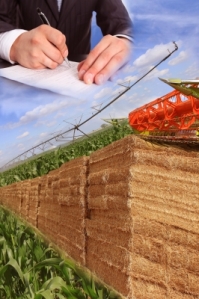With so much political noise coming from Iowa in the last few days, one curious bit of news went almost unnoticed: a Chinese citizen pleaded guilty to the charge of stealing corn seeds on behalf of a biotech company in Beijing. Why would corn seeds be of such interest to China? The answer came from an article shared on Twitter. This piece on the battle between China and the US to control the global food supply was a revelation.
It provides details of how the theft was uncovered and the offenders caught and also reveals what motivated this act :” Despite its remarkable landmass, China simply can’t grow enough food to feed itself, particularly now that the country’s burgeoning middle class has acquired an appetite for meat. (Most corn in China is used as feed for livestock.) Water shortages and lack of arable terrain have forced their government to buy between two and five million metric tons of American corn annually, approximately 94 percent of all corn imported into China each year.” In its efforts to throw off their dependence on US food production, China is pursuing a plan to grow more at home, and a crucial tool in this effort is high yielding seeds, hence the interest in insect resistant bt corn.
Further, while the theft was set up by a Chinese company, it seems to have the tacit approval of the Chinese government. The matter was treated by the FBI as one of national security: “The federal government, thereby, has implicitly acknowledged that it considers agricultural products both an asset and a weapon in a long-range geopolitical chess match with China, a resource of near-military value and importance, one that must be protected by all available means. By that logic, those Chinese nationals stealing corn are spies, no different—and, indeed, perhaps more important—than those who swipe plans for a new weapons system.”
The place of corn as a weapon in international political strategy is not new, as we learn from the narrative; the development of hybrid seeds to maximize output was part of the strategy to outperform the collective farms of Russia and China. In a time of growing population and climate uncertainty impacting food production, the use of agricultural biotechnology to ensure food security remains crucial.
If international policy matters seem somewhat removed from our daily reality, there is another aspect which is easier to recognize: who is working in the fields to grow all this corn (among other crops)? It is usually an immigrant farm worker, perhaps living here without legal papers, filling in the vacuum of labor created by an ageing farming population and urban migration of young people. They are a crucial part of food production but how does the system treat them? Can we demand a just food system yet ignore farm workers? For while the candidates may talk about sending people back and local residents might resent the influence of a very different culture in their midst; they are both constrained by the need for labor to grow the crops which fill plates at home and in the world.
Food is not just about what we eat, it shapes the world in ways that might not always be evident. There are often no simple and easy solutions. All the more reason why we need to debate the issues with patience and honesty.
(Image Courtesy: “Fresh Corn Cobs” by foto76 at freedigitalphotos.net)










